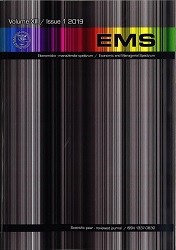EVALUATION OF THE EFFECTS OF INTERVENTION PROGRAMS FOR UNEMPLOYED: AN OVERVIEW OF METHODS
EVALUATION OF THE EFFECTS OF INTERVENTION PROGRAMS FOR UNEMPLOYED: AN OVERVIEW OF METHODS
Author(s): Jaromír Vrbka, Georgeta Anca Petre LuțanSubject(s): Labor relations, Methodology and research technology, Evaluation research, Human Resources in Economy, Socio-Economic Research
Published by: Žilinska univerzita v Žiline, Fakulta prevádzky a ekonomiky dopravy a spojov, Katedra ekonomiky
Keywords: counterfactual evaluation; quasi-experimental methods; intervention; unemployed jobseeker;
Summary/Abstract: To assess the impact of policy instruments for the specific target group of unemployed jobseekers, various statistical and econometric methods are usually used, the most commonly used of which are unambiguously counterfactual methods. Their principle lies in creating a counterfactual situation, which estimates what would have happened in the absence of intervention. In quasi-experimental studies, this evaluation can be performed using a control group of non-treated individuals. In this paper, we provide an overview of the methods of creating this control group and consequent evaluation of the effect of the programs and we also analyze the use of methods in studies conducted in the EU Member States.
Journal: Ekonomicko-manazerske spektrum
- Issue Year: 13/2019
- Issue No: 2
- Page Range: 56-67
- Page Count: 12
- Language: English

